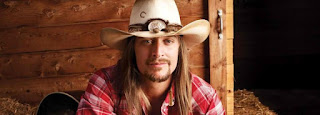Brian Croy, vice-president with the United Steelworkers’ local was sitting in a training session when the mill exploded. The room’s plywood walls were blown down on top of the workers and Croy and his colleagues escaped through a section of outer wall that had been destroyed by the blast.
“It’s almost like you were coming out of a war zone. Everything was leveled. I met one fellow I think his fingers were blown off, and his clothing, a lot of it was gone. It was off and his hair,” Croy told the Canadian Press. Upon arriving at an outdoor first-aid station, Croy found workers sitting on a tarp, holding up burned arms and hands while one worker lay naked on the tarp, burned black and without any hair.
A WorkSafeBC investigation found that an overheated fan shaft ignited the dust-laden air resulting in the explosion. Wood dust is a well known explosion hazard in saw mills. The Lakeland mill was sawing large amounts of pine beetle-killed trees. This wood is extremely dry and, when milled, creates a large amount of fine dust. Only three months earlier, the Babine sawmill near Burns Lake had blown up in basically the same manner.
An interesting new WorkSafeBC memo has surfaced. Written after the first explosion but weeks before the second, it seems to suggest identify expected employer pushback as a reason to delay additional enforcement focused on reducing the risk of wood dust explosions:
-- Bob Barnetson
“It’s almost like you were coming out of a war zone. Everything was leveled. I met one fellow I think his fingers were blown off, and his clothing, a lot of it was gone. It was off and his hair,” Croy told the Canadian Press. Upon arriving at an outdoor first-aid station, Croy found workers sitting on a tarp, holding up burned arms and hands while one worker lay naked on the tarp, burned black and without any hair.
A WorkSafeBC investigation found that an overheated fan shaft ignited the dust-laden air resulting in the explosion. Wood dust is a well known explosion hazard in saw mills. The Lakeland mill was sawing large amounts of pine beetle-killed trees. This wood is extremely dry and, when milled, creates a large amount of fine dust. Only three months earlier, the Babine sawmill near Burns Lake had blown up in basically the same manner.
An interesting new WorkSafeBC memo has surfaced. Written after the first explosion but weeks before the second, it seems to suggest identify expected employer pushback as a reason to delay additional enforcement focused on reducing the risk of wood dust explosions:
Industry sensitivity to the issue given the recent event and limited clarity around what constitutes an explosion could lead to push back if an enforcement strategy is pursued at this time.Roughly 20 days later, the Lakeland Mill exploded—due to wood dust accumulation. In effect, government concern about employer interests delayed enforcement action that might have saved workers’ lives. As Alberta moves towards a review of both its workers’ compensation and occupational health an safety systems, the perils (to workers) of systems that are overly cozy with employers should be at the forefront of the government’s mind.
-- Bob Barnetson








